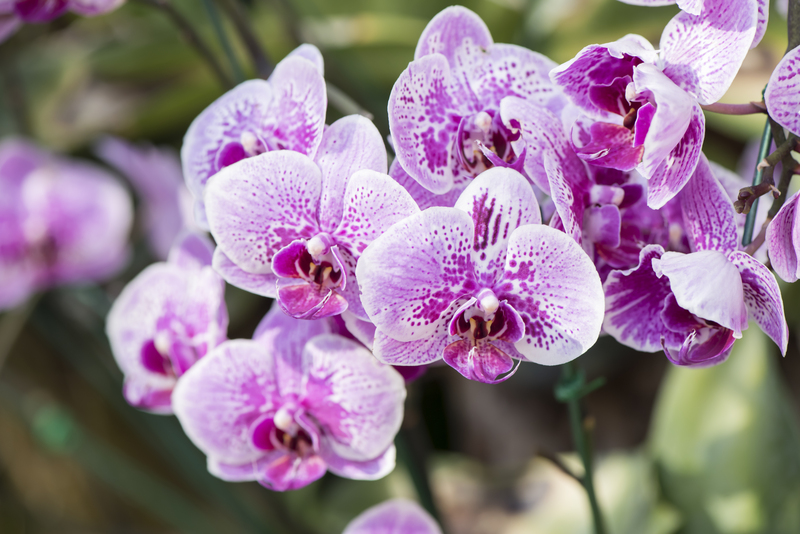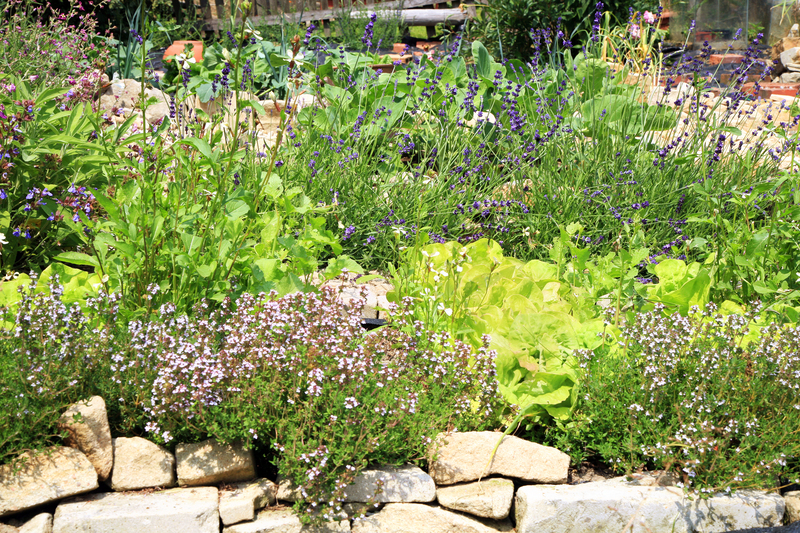From Digging to Delighting: Effective Gardening Tips for Dog Lovers
Posted on 18/06/2025
From Digging to Delighting: Effective Gardening Tips for Dog Lovers
Gardening is a passion for many pet owners, but sharing your beloved garden with furry friends can sometimes present unexpected challenges. If you love both your outdoor oasis and your canine companion, you're likely searching for ways to keep both safe and happy. This comprehensive guide offers actionable, creative, and dog-friendly gardening tips that help you turn your backyard from a digging zone into a delight for both you and your dog.
The Beautiful Connection Between Dogs and Gardens
Gardens and dogs both bring joy and serenity to our homes. But that harmony doesn't always come naturally! For many dog lovers, their pets' instincts--such as digging, rolling, or simply exploring--may result in chewed plants, trampled flowers, or upended soil beds. Yet, with intentional design and some clever strategies, your landscape can remain a flourishing sanctuary and a canine playground.

Understanding Why Dogs Dig
Before you address the problem, it's crucial to understand why dogs dig in your flowerbeds or lawns. Common reasons include:
- Boredom—They're looking for stimulation.
- Instinct—Certain breeds are naturally predisposed to digging.
- Searching for cool earth—Dogs may dig to cool off during hot days.
- Chasing scents or small animals—Gardens are full of enticing smells!
- Attention-seeking—Some dogs dig because it gets a reaction from their owner.
Knowing your dog's motivations is the first step toward creating an enjoyable and sustainable outdoor space for both of you.
Designing Your Dog-Friendly Garden Paradise
Effective gardening for dog lovers isn't just about stopping destructive behavior; it's also about encouraging good habits and making your yard a safe, happy space. Here's how:
1. Create Dedicated Dog Zones
- Dig pit or sandpit—Dedicate a special digging area for your dog. Fill a corner with sand or loose soil and hide a few sturdy toys or treats in it. Redirect your dog here whenever you see them digging elsewhere.
- Shady Rest Spots—Install dog-safe shade structures or plant non-toxic trees to provide cooling retreats.
- Dog paths—Dogs are creatures of habit and love to patrol. Give them clear paths along fences or garden edges, perhaps lined with soft grass or mulch, to reduce traffic through fragile flower beds.
2. Choose Dog-Safe Plants
Some common landscape plants are toxic to dogs. Always select dog-friendly plants when planning your garden. Good options include:
- Marigolds
- Rosemary
- Snapdragons
- Sunflowers
- Bamboo
- Fuchsias
- Camellias
Avoid lilies, azaleas, sago palms, and foxgloves--as these are toxic to dogs.
3. Use Pet-Friendly Mulch and Avoid Harmful Chemicals
Cocoa mulch is attractive but can be deadly for dogs. Opt for cedar, pine, or untreated wood chips instead. When it comes to garden treatments:
- Avoid chemical pesticides, slug pellets, and synthetic fertilizers.
- Use organic, dog-safe fertilizers like bone meal or composted manure (always check for added chemicals).
4. Fence Off Vulnerable Areas
Not all garden beds are meant for dogs' paws. Use short decorative fences, raised beds, or dense shrub borders to protect especially fragile or valuable plants.
Training Dogs for Garden Success
Training is an essential component of any dog-friendly gardening strategy. With consistency and positive reinforcement, you can help your canine companion develop respectful garden habits.
Reinforce Positive Behaviors
- Use treats and praise—Reward your dog whenever they use their designated digging zone or stay off the flowerbeds.
- Supervise your dog outdoors—At least initially, monitor them closely to intervene quickly if unwanted digging behavior begins.
- Be patient. Most dogs will learn appropriate garden behavior with time and encouragement.
Discourage Bad Habits Humanely
- Block access to repeatedly targeted beds with garden fencing or chicken wire until your dog learns boundaries.
- Use safe deterrents like citrus peels or natural sprays (dogs often dislike the smell of citrus).
- Redirect attention: When you catch your dog engaging in undesirable digging, gently redirect them to their dog-friendly area instead.
Enriching the Garden Experience for Your Dog (and You!)
Gardens can be a wonderful source of enrichment for pets. If your dog views your outdoor space as a place for fun, exploration, and relaxation, they're less likely to cause mischief.
Ideas to Make Your Dog Love the Garden
- Provide interactive toys and puzzle feeders around the yard.
- Install a small wading pool for hot summer days--supervised fun helps reduce stress and excessive digging.
- Use agility tunnels, ramps, or weave poles to create a simple outdoor obstacle course.
- Incorporate aromatic plants like thyme and lavender, which are safe for dogs and provide a delightful sensory experience.
- Let your dog partake in light gardening tasks with you; gentle digging, fetching garden tools, or simply keeping you company.
Maintaining a Safe and Beautiful Garden for Dogs
Regular garden upkeep is crucial to ensure ongoing safety and attractiveness for both you and your dog.
- Check for hazards—Routinely inspect for sharp tools, open compost bins, or dropped fertilizers.
- Monitor plant growth—Quickly remove any toxic weeds or mushrooms that may appear after rain.
- Secure your perimeter—Ensure fences and gates are intact to prevent escapes.
Prioritize both canine and plant health, and you'll enjoy a harmonious outdoor lifestyle for many seasons to come.
Expert-Level Gardening Tips for Dog Owners
Ready to take your dog-friendly gardening to the next level? Try these advanced ideas for a truly delightful landscape:
- Consider artificial turf for heavy traffic or shaded areas that struggle to maintain real grass.
- Install motion-triggered sprinklers to gently deter digging or unwanted exploration in sensitive areas.
- Use raised beds and vertical gardening to protect vegetables and delicate flowers from curious paws.
- Designate "dog potty" spots lined with gravel or mulch. Train your dog to use this area to minimize urine damage on the lawn.
- Rotate toys and enrichment activities to curb boredom and keep your dog mentally stimulated while outdoors.

Frequently Asked Questions About Gardening for Dog Owners
What are the best flowers for dog-friendly gardens?
Dog-safe flowers include sunflowers, snapdragons, marigolds, and fuchsias. Always double-check plant labels or consult with garden centers knowledgeable about pets before purchasing new varieties.
How can I prevent my dog from digging up plants?
Redirect digging behavior to a special sandbox or digging pit, use positive reinforcement, and temporarily block off sensitive areas. Provide lots of outdoor enrichment to reduce boredom.
Are lawn treatments safe for dogs?
Many traditional lawn treatments use chemicals unsafe for pets. Opt for organic and dog-approved alternatives, and keep dogs off recently treated areas until products are fully absorbed and the surface is dry.
What if my dog keeps eating grass or plants?
It's common for dogs to nibble on grass, but persistent plant eating may indicate boredom or nutritional gaps. Make sure you're providing a stimulating environment and consider a veterinary consult if the behavior persists. Always promptly remove any toxic plants that emerge.
From Digging to Delighting - Your Garden, Your Dog, Your Joy
With thoughtful planning and proactive care, you can balance the love for lush plants with the fun-loving energy of your canine friend. Effective gardening for dog lovers is achievable and rewarding. Encourage good habits, make smart plant choices, and turn your backyard into a paradise for everyone! By following these dog-friendly gardening tips, you'll move from frustration over digging to pure delight--watching your garden and your pup thrive together, season after season.
Turn your garden into a space of joy, growth, and paws-itive energy--tail wags guaranteed!
Latest Posts
Harness the power of vertical gardening
Top Picks: Garden Tools for Outdoor Enthusiasts
Shield Your Garden from Winter's Chill

